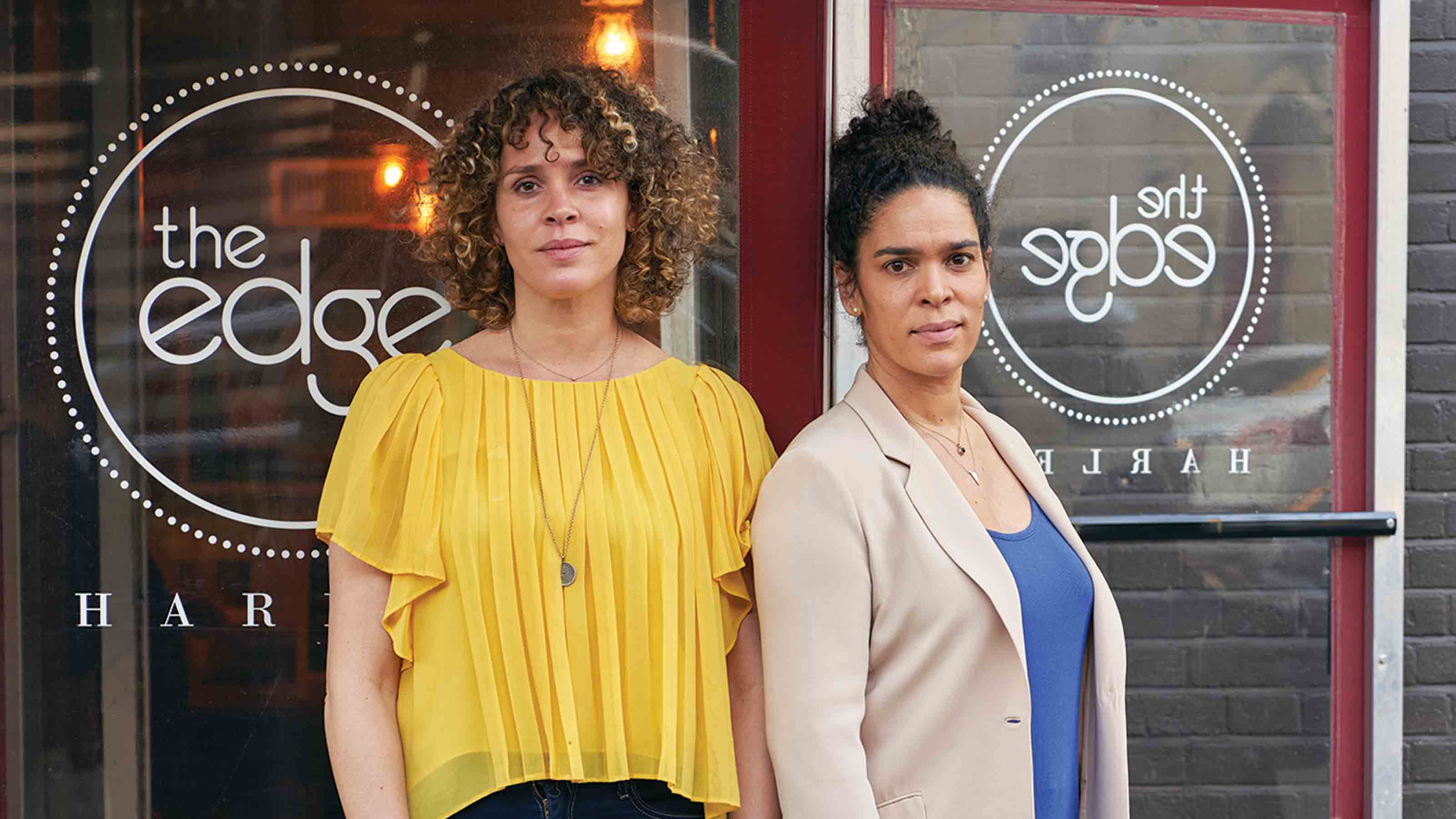Reliving a Harlem Renaissance
After a tough winter, two sisters look forward to reviving their restaurant’s business.


Profit and prosper with the best of Kiplinger's advice on investing, taxes, retirement, personal finance and much more. Delivered daily. Enter your email in the box and click Sign Me Up.
You are now subscribed
Your newsletter sign-up was successful
Want to add more newsletters?

Delivered daily
Kiplinger Today
Profit and prosper with the best of Kiplinger's advice on investing, taxes, retirement, personal finance and much more delivered daily. Smart money moves start here.

Sent five days a week
Kiplinger A Step Ahead
Get practical help to make better financial decisions in your everyday life, from spending to savings on top deals.

Delivered daily
Kiplinger Closing Bell
Get today's biggest financial and investing headlines delivered to your inbox every day the U.S. stock market is open.

Sent twice a week
Kiplinger Adviser Intel
Financial pros across the country share best practices and fresh tactics to preserve and grow your wealth.

Delivered weekly
Kiplinger Tax Tips
Trim your federal and state tax bills with practical tax-planning and tax-cutting strategies.

Sent twice a week
Kiplinger Retirement Tips
Your twice-a-week guide to planning and enjoying a financially secure and richly rewarding retirement

Sent bimonthly.
Kiplinger Adviser Angle
Insights for advisers, wealth managers and other financial professionals.

Sent twice a week
Kiplinger Investing Weekly
Your twice-a-week roundup of promising stocks, funds, companies and industries you should consider, ones you should avoid, and why.

Sent weekly for six weeks
Kiplinger Invest for Retirement
Your step-by-step six-part series on how to invest for retirement, from devising a successful strategy to exactly which investments to choose.
Profile
Who: Justine (at left in photo) and Juliet Masters, ages 45 and 46
What: Co-owners of The Edge Harlem restaurant
Where: New York City
From just $107.88 $24.99 for Kiplinger Personal Finance
Become a smarter, better informed investor. Subscribe from just $107.88 $24.99, plus get up to 4 Special Issues

Sign up for Kiplinger’s Free Newsletters
Profit and prosper with the best of expert advice on investing, taxes, retirement, personal finance and more - straight to your e-mail.
Profit and prosper with the best of expert advice - straight to your e-mail.
How did The Edge come about? Juliet: Justine and I opened The Edge about six years ago to create a space in our Harlem neighborhood where people could go to eat good food, enjoy each other’s company and inspire each other. We were able to secure a loan from Chase bank to get us started with a small base of capital, and then over a year we basically pieced together enough capital and financing to build out the space.
Your restaurant has a lot of history. Justine: During the Harlem Renaissance there was a librarian and activist, Regina Andrews, who lived in our building. She would hold literary salons and have a lot of creatives coming into the building, like Langston Hughes, Countee Cullen, Zora Neale Hurston and W.E.B. Du Bois. Having that history really sealed the deal for Juliet and me, as women of color who wanted to celebrate the Harlem Renaissance and accentuate that history. When you come into the restaurant, you’ll see we have a huge portrait of a young Langston Hughes on the wall.
Before the pandemic, did you make a good living from the restaurant? Juliet: We were just about hitting our sweet spot before the pandemic hit. We had become a destination. We became a place that people would come to from Jersey or Brooklyn or Queens or the Bronx. And we had a lot of tourists who would make a point to come here, too, from France or Germany—all over, really—to have a meal and enjoy the vibe.
How did COVID affect your business? Justine: Come winter, when they shut down indoor dining again, that was a real hard slap for all of us in the restaurant business in New York. So when that happened, that’s when we reduced our hours. We also reduced our staff hours by 30%. We were basically just covering our rent and expenses and our labor costs.
Did you find new ways to reach the community? Juliet: We did not have a delivery platform prior to the pandemic; we just did in-house dining and takeout. So we had to set ourselves up on a delivery platform. Justine: We also use social media to post our daily specials, with enticing pictures of food to get people to order. That definitely made a difference on cold nights in the winter.
Did you take out PPP loans? Juliet: Yes, absolutely. We definitely needed that. We kept all of our staff at full salary despite reduced hours. Even during the beginning, when we were losing money like it was bleeding out the door, they still got paid as if it were a regular week of business.
As the city relaxes in-person dining restrictions, what’s it like to reopen? Juliet: There are a lot of rules in place with COVID that add more-complicated layers to being a service business. There’s mask enforcement, hand sanitizing, contact tracing and physical distancing in the restaurant. We have an air filter, and we keep the windows open. But now people are being vaccinated, and they’re tired; some people don’t want to wear their mask when they’re walking to the door or the bathroom. It’s difficult. Justine: We took an extra month and a week after the city said we could reopen to be sure they wouldn’t shut us down again. And we’re happy to say that most of our staff were able to receive at least the first dose of their vaccination before we reopened.
Profit and prosper with the best of Kiplinger's advice on investing, taxes, retirement, personal finance and much more. Delivered daily. Enter your email in the box and click Sign Me Up.

Emma Patch joined Kiplinger in 2020. She previously interned for Kiplinger's Retirement Report and before that, for a boutique investment firm in New York City. She served as editor-at-large and features editor for Middlebury College's student newspaper, The Campus. She specializes in travel, student debt and a number of other personal finance topics. Born in London, Emma grew up in Connecticut and now lives in Washington, D.C.
-
 5 Vince Lombardi Quotes Retirees Should Live By
5 Vince Lombardi Quotes Retirees Should Live ByThe iconic football coach's philosophy can help retirees win at the game of life.
-
 The $200,000 Olympic 'Pension' is a Retirement Game-Changer for Team USA
The $200,000 Olympic 'Pension' is a Retirement Game-Changer for Team USAThe donation by financier Ross Stevens is meant to be a "retirement program" for Team USA Olympic and Paralympic athletes.
-
 10 Cheapest Places to Live in Colorado
10 Cheapest Places to Live in ColoradoProperty Tax Looking for a cozy cabin near the slopes? These Colorado counties combine reasonable house prices with the state's lowest property tax bills.
-
 How to Search For Foreclosures Near You: Best Websites for Listings
How to Search For Foreclosures Near You: Best Websites for ListingsMaking Your Money Last Searching for a foreclosed home? These top-rated foreclosure websites — including free, paid and government options — can help you find listings near you.
-
 Four Tips for Renting Out Your Home on Airbnb
Four Tips for Renting Out Your Home on Airbnbreal estate Here's what you should know before listing your home on Airbnb.
-
 Is Relief from Shipping Woes Finally in Sight?
Is Relief from Shipping Woes Finally in Sight?business After years of supply chain snags, freight shipping is finally returning to something more like normal.
-
 Economic Pain at a Food Pantry
Economic Pain at a Food Pantrypersonal finance The manager of this Boston-area nonprofit has had to scramble to find affordable food.
-
 The Golden Age of Cinema Endures
The Golden Age of Cinema Enduressmall business About as old as talkies, the Music Box Theater has had to find new ways to attract movie lovers.
-
 Pricey Gas Derails This Uber Driver
Pricey Gas Derails This Uber Driversmall business With rising gas prices, one Uber driver struggles to maintain his livelihood.
-
 Smart Strategies for Couples Who Run a Business Together
Smart Strategies for Couples Who Run a Business TogetherFinancial Planning Starting an enterprise with a spouse requires balancing two partnerships: the marriage and the business. And the stakes are never higher.
-
 Fair Deals in a Tough Market
Fair Deals in a Tough Marketsmall business When you live and work in a small town, it’s not all about profit.